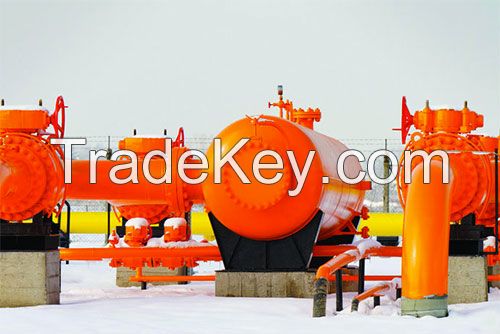
It is a low-density mixture of hydrocarbon liquids that are present as gaseous components in the raw natural gas produced from many natural gas fields. Some gas species within the raw natural gas will condense to a liquid state if the temperature is reduced to below the hydrocarbon dew point temperature at a set pressure.
The natural gas condensate is also referred to as simply condensate, or gas condensate, or sometimes natural gasoline because it contains hydrocarbons within the gasoline boiling range. Raw natural gas may come from any one of three types of gas wells:
Crude oil wells—Raw natural gas that comes from crude oil wells is called associated gas. This gas can exist separate from the crude oil in the underground formation, or dissolved in the crude oil. Condensate produced from oil wells is often referred to as lease condensate.
Dry gas wells—These wells typically produce only raw natural gas that does not contain any hydrocarbon liquids. Such gas is called non-associated gas. Condensate from dry gas is extracted at gas processing plants and, hence, is often referred to as plant condensate.
Condensate wells—These wells produce raw natural gas along with natural gas liquid. Such gas is also called associated gas and often referred to as wet gas.
